In pursuing transformation of women’s leadership, solutions, and alliances, we work at the intersection of gender, indigenous, racial, economic, social, and environmental justice.
We know that many environmental movements have perpetuated the marginalization of the global majority — including people of color, native peoples, people from working class backgrounds, women, and LGBTQ people. We believe that these communities must be centered in the work we do. We ground our curriculum and activities in our Accountability Principles, working to unpack, dismantle and transform oppressive systems.
In all of our programs, our Design and Advisory Teams build light-framed, non-extractive and flexible curriculum, drawing upon their lived experiences, and their deep commitment to creating models that expose systemic inequities and offer pathways toward collective liberation.

Climate
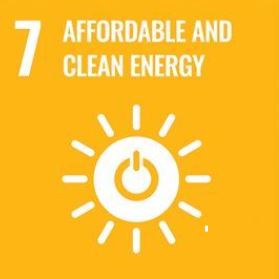
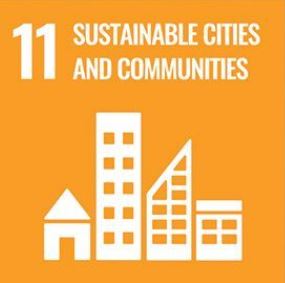

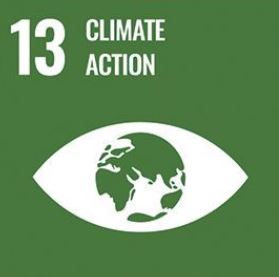
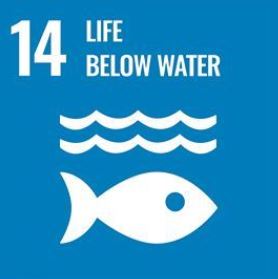
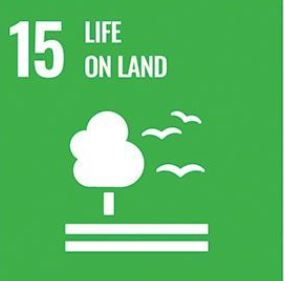
Problem
Women are disproportionately impacted by climate disasters, and yet their leadership has never been more pivotal to reversing global warming. Women make up 80% of the world’s climate refugees and are 14 times more likely to die in a climate-related disaster than men. In the wake of climate crises, women experience greater health, economic, and social consequences, like the toxic burden of smoke from fires that can be passed on to children in the womb, sexual violence and trafficking during climate-induced displacement, and loss of livelihoods. Indigenous women and women of color face the most severe consequences and are central to the transformation of the climate crisis. Increasing evidence points to the fact that women's empowerment, education, and leadership could translate into 85 gigatons of atmospheric CO2 reduction, making this a key solution to reversing global warming.*
Solution
Since its inception, WEA's model has centered women's knowledge, leadership, and alliances in transforming the climate crisis and climate injustice. All climate solutions employ an intersectional lens and generate myriad environmental, social, and economic benefits. A WEA collaborative project advancing tree-planting for climate mitigation in Kenya, for example, is sequestering an average of 19 million pounds of carbon each year while also advancing food-security, erosion control, and women’s income through tree nursery micro-enterprises. In the U.S., a WEA Alliance Leader is training and catalyzing 70 Black, Indigenous, and People of Color (BIPOC) activists to take on leadership positions in the national climate movement, ensuring that individuals who are closest to the climate crisis are leading climate solutions and have sustainable livelihoods within the movement.

conservation


Problem
An estimated 240 acres of natural habitat is destroyed every hour. We have lost 60% of our planet's vertebrate wildlife populations in just the last 40 years, primarily due to habitat destruction. Increasing evidence shows that women's participation and decision-making in management of local forests significantly improves forest conditions and conservation.* And in particular, leadership by indigenous women, who have lived in sustainable balance with the natural world for generations, is crucial to preserving life on the planet without perpetuating the undue burden on already vulnerable communities.
Solution
WEA engages an intersectional justice lens to ensure that conservation efforts holistically advance economic, social, and cultural justice. In Indonesia, for example, Alliance Leaders restored 20 square miles of coral reefs and 13 miles of shoreline, while integrating local communities in decision-making, generating sustainable jobs, and collectively benefitting 40,000 people. In Sumatra, the advocacy of WEA Alliance Leaders prevented the destruction of 10,000 acres of forest and protected the indigenous lifeways of 250,000 people. Their success set a precedent for future court decisions to protect Indonesian forests threatened by extractive industry. And in India, Alliance Leaders are restoring forests through native species, protecting forests and economies through non-timber forest-based livelihoods, and developing responsible tourism to generate local livelihoods while protecting wild places.

Economics
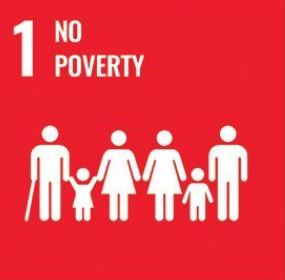
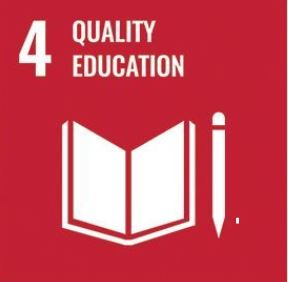
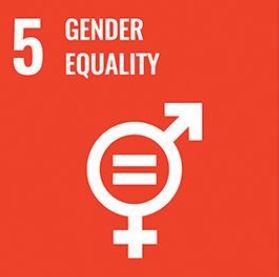
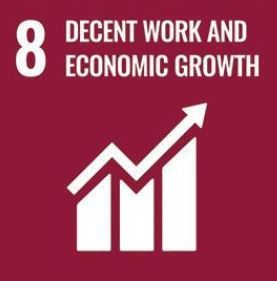
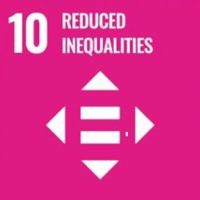

Problem
Women's economic empowerment improves outcomes for families, economies, environment, and society. Yet women are systematically underpaid, earning on average 24% less than men do for equal work and bearing the brunt of unpaid care and work at home. Women reinvest an average of 90% of their income back into their families, while men on average reinvest 35%.* Hiring and promoting women to leadership positions drives returns and boosts economies overall. If women were to participate in the economy at the same level as men, as much as $28 trillion, or 26%, could be added to global annual GDP by 2025.*
Solution
WEA recognizes that environmental transformation must occur in tandem with economic transformation. That is why all WEA Programs include models for fully funding women-led solutions in a sustainable and scalable manner. WEA engages an economic justice lens whereby income and savings are generated and channeled to women and other economically marginalized groups. For example, solar power enterprises generate income for women entrepreneurs and savings for households by reducing purchases of dirty energy, while improving human and climate health. A WEA clean cookstoves initiative in Nigeria generated $550,000 USD in savings over two years among households that purchased and adopted improved stoves through reduced firewood purchases, while also improving health for women and children, reducing deforestation, and mitigating climate change.

Education

Problem
Every day, women and girls face barriers to education caused by poverty, cultural norms, poor infrastructure, violence, and climatic shocks. Women make up more than two-thirds of the world's illiterate people, and girls in rural areas are twice as likely as urban girls to be out of school.* This injustice, particularly experienced in the Global South and among girls and women of color, plays a significant role in perpetuating racial, socio-economic, and health inequities. Every additional year of school increases girls' eventual wages by 10-20%, strengthens family planning, improves future child and family health outcomes, reduces risk of violence, and improves community environmental stewardship. In fact, because of these and many other benefits, it is estimated that increased education and leadership of women and girls could translate into 85 gigatons of atmospheric CO2 reduction, making this a key solution to reversing global warming.*
Solution
WEA's approach to education focuses on two strategies: 1) hands-on learning geared toward scaling environmental and climate solutions and 2) catalyzing the adoption of environmental technologies that improve women's and girls' health and safety and save their productive time so they can invest it into education, work, and other activities of their choice. For example, in Indonesia, WEA Alliance Leaders developed environmental and health education and vocational programming for hundreds of "scavenger children" who are growing up in and around landfills. In Eastern India, a WEA In Northern India, WEA Alliance Leaders designed and implemented an Experiential Environment Education program for 10,000 children and hundreds of teachers. In Northern India, a WEA water, hygiene and sanitation project not only resulted in improved community health, but also an increase in children's school attendance, particularly among girls due to their need for water, hygiene, sanitation during menstruation.

Energy

Problem
Dirty energy in the form of oil, coal, and gas provides for about 80% of global energy needs and causes irreversible damage to human and environmental health, particularly in low-income and BIPOC communities and to the bodies of women and girls. In the U.S., burning fossil fuels accounts for about three-quarters of carbon emissions and the poisoning of millions of people and ecosystems through contaminated water and toxic air. Besides women and children being particularly susceptible to these toxins, they are also the most susceptible to the domestic and sexual violence that often accompany extractive industry projects that bring outside workers, drugs, and crime to their communities. In households in the Global South, smoke inhalation from cooking over open fires and traditional cookstoves kills over 4 million people every year and sickens millions more, particularly women and children. The energy sector is vastly dominated by men and remains one of the least gender diverse sectors.* However, women are quickly growing the informal energy sector and are key drivers of the innovative and inclusive solutions and activism that will transform our current energy crisis.
Solution
WEA supports and catalyzes clean energy solutions at the forefront of women’s grassroots energy revolution. For example, in Navajo Nation, WEA’s Transformative Advocacy Program facilitated legal advocacy projects amongst Native women leaders and advocates to create energy justice in the form of community solar initiatives. In Northern California, WEA Alliance Leaders are transforming how communities access, own, and manage clean energy through community-led solar cooperatives. And in Nigeria, WEA’s Clean Energy Accelerator equipped women leaders from Northern Nigeria to launch clean cookstove enterprises that resulted in over 6,500 households purchasing clean, safe cookstoves within the first year. This translated into: 39,000 trees saved from deforestation, 16,000 tons of carbon sequestered, $550,000 of household savings, 3.4 million hours of women’s productive time diverted from firewood collection to school and livelihood activities; and 32,500 healthier people who are not at risk of toxic smoke inhalation, which is the 3rd largest killer in Nigeria after AIDS and malaria.

Food & Agriculture
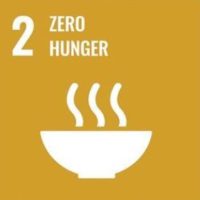


Problem
Women make up almost half of the world’s farmers and produce more than half of the world’s food, yet own only a small percentage of the world’s land.* Women often have little to no control over their land, farm inputs, or the distribution of profits from sales of their products, particularly in the Global South and among women farmers of color. This disparity severely constrains global agricultural productivity and exacerbates food insecurity, poverty, and poor natural resource management. If women farmers had the same rights and access to agricultural resources as men, food production could increase by 20-30%, and the number of hungry people in the world could be reduced by 150 million.*
Solution
Since 2007, WEA has supported over 7,000 women farmers to transform their farms using climate-smart and regenerative agriculture practices, alongside peer learning and sector-specific skill-building in farm economics, indigenous seed saving, reclaiming biodiversity and traditional knowledge, and climate adaptation and mitigation. Through WEA’s Seeds of Resilience Initiative in Karnataka, India, at least 20,000 people have replaced industrial seed with native seeds, growing biodiversity and economic and food security through women’s seed collectives. In the U.S., WEA Alliance Leaders are fighting pesticide exposure in California’s Central Valley, improving healthy food access and diverse representation in St. Louis, advocating for climate-smart and just federal agricultural policy, and rebuilding food security and traditions through native seed saving in Virginia. And in Indonesia, WEA Alliance Leaders are converting chemically-contaminated farms to organic and improving cacao farmer livelihoods through regenerative agriculture and improved access to markets.

Health & Safety
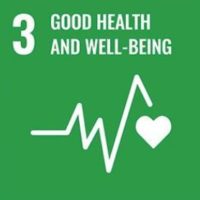

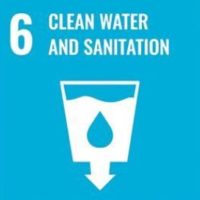

Problem
The health and safety of our bodies is inextricably linked to the health and safety of our environment. Women and girls are disproportionately impacted by environmental and climate crises, especially in low income and marginalized communities where polluting industries often locate their facilities. Women's bodies carry a disproportionate “body burden” of pesticides, pollutants, and chemicals in their body fat that affect their reproductive health and can pass on to their children in the womb.* Extractive industry also has significant links to violence against women. And in the wake of the COVID-19 pandemic, women, girls, indigenous people, and communities of color are losing their livelihoods, educational opportunities, and access to critical health care at higher numbers, and suffering increased domestic and sexual violence and trafficking.
Solution
WEA takes an intersectional approach to women's health and safety, environment, economics, and justice, recognizing that they are inextricably linked. Through WEA's COVID and Climate Resiliency Program, thousands of women in Nigeria, Kenya, Uganda, Tanzania, the Congo, and Nicaragua are mobilizing relief and creating long term water, sanitation, health, and climate resiliency solutions. They are preparing their communities by growing diverse and native foods, building permanent water and sanitation infrastructure, creating health clinics, launching tree nurseries, and building soap-making enterprises. In San Antonio, Texas, WEA Alliance Leaders are fighting air pollution to protect 375,000 children through political advocacy and education. And in India, WEA Alliance Leaders are ensuring that 50,000 girls and women across 20 states are accessing compostable sanitary pads, breaking the taboos of feminine hygiene, and stimulating sustainable and healthy livelihoods for hundreds of women.

Indigenous Lifeways

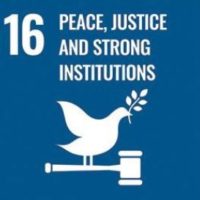
Problem
Comprising less than 5% of the world's population, Indigenous people protect 80% of global biodiversity within their lands, and have done so for generations through traditional ecological principles. Indigenous women have long been at the forefront of local and global efforts to protect and defend territories of immense socio-ecological diversity and to preserve Indigenous knowledge and lifeways that are critical for our collective thriving on Earth. As community caretakers, guardians of future generations, and resource stewards, Indigenous women’s leadership has never been more critical.
Solution
WEA acts in solidarity with Indigenous women leaders towards revitalizing traditional ways of living together on Earth. WEA Alliance Leaders are preserving indigenous seed saving practices, facilitating climate adaptation and mitigation, and securing the land rights of women farmers. Through WEA’s Seeds of Resilience Initiative in Karnataka, India, women’s seed collectives supported at least 20,000 people to replace industrial seed with native seeds, thereby growing biodiversity and economic and food security. In North America, WEA and NYSHN’s Shedding Light on Environmental Violence Initiative supported the leadership of Indigenous women and girls who are resisting violence in their communities caused by the presence of oil, gas, mining and fracking industries. Through toolkits, resources, and a report, Indigenous women impacted by these industries documented environmental violence in their territories, educated their communities and the public about these impacts, led culturally-appropriate resistance efforts, shared traditional healing resources, and influenced policy.
Water


Problem
Thirty percent of humanity does not have ready access to safe drinking water.* According to the UN, water is the primary medium through which we will feel the effects of climate change. In many places, water availability is becoming less predictable - droughts are exacerbating water scarcity and flooding is destroying water points and contaminating water sources. By 2025, half of the world’s population will be living in water-stressed areas. Women and girls around the world bear the brunt of this crisis, spending 200 million hours (equivalent to 22,800 years) every day collecting water.* If households around the world had safe water, not only would global health outcomes dramatically improve, but women and girls could dedicate this lost time to education, work, and environmental and climate health.
Solution
WEA's approach to water focuses on community-led solutions and management for long-term resilience. WEA co-founded the Global Women’s Water Initiative, which equipped African women leaders with technical, entrepreneurial, and advocacy expertise to transform water crises into opportunities. In partnership with Numi Organic Tea’s Together for H2OPE Program, WEA is ensuring safe drinking water in tea farming communities. In Assam, India, 6,500 tea farming families have access to safe drinking water through use of household filters and school and work attendance has increased through improved health, hygiene, and sanitation. Women's leadership is also thriving through their role as community trainers. In Southern India, WEA Alliance Leaders are building sustainable urban water management programs based on collective community action and preventing sewage disposal in groundwater recharge areas.

Waste Management



Problem
The world generates 2 billion tons of municipal solid waste annually, with at least 33% not managed in an environmentally safe manner. Burning and rotting waste produces greenhouse gases that contribute to global warming and toxic gases that poison our air and lungs. Plastic pollution kills an estimated 100 million marine animals every year and at our current rate, by 2050, plastic in the oceans will outweigh fish. While high-income countries only account for 16% of the world’s population, they generate about 34% of the world’s waste. Low-income countries bear much of the waste burden due to poor waste management infrastructure and the dumping of waste by high-income countries. On a local level, the same scenario plays out in high-income and low-income communities. While the formal waste management sector is dominated by men, women have long led the informal waste management sector as recyclers and scrap pickers. Women are increasingly leading a revolution in local waste management. In order to transform our global consumption and waste crises, women-led, grassroots solutions must be supported.
Solution
Around the world, WEA is accelerating women-led grassroots solutions to our global waste crisis. WEA Alliance Leaders in Indonesia, for example, are diverting plastics from the oceans and wastestream in a community of over 500,000 people by recycling plastic waste -- catalyzing recycling and upcycling enterprises and stimulating the economy in the process. Also in Indonesia, WEA Alliance Leaders are creating closed loop systems for food waste by launching composting programs combined with food gardens for improved nutrition and income generation and creating waste upcycling projects to produce clothing and personal accessories that generate jobs and public awareness. In India, WEA Alliance Leaders are creating reusable, compostable sanitary pads for 50,000 girls and women across 20 states, while breaking the taboo of feminine hygiene and generating jobs for hundreds of women.
